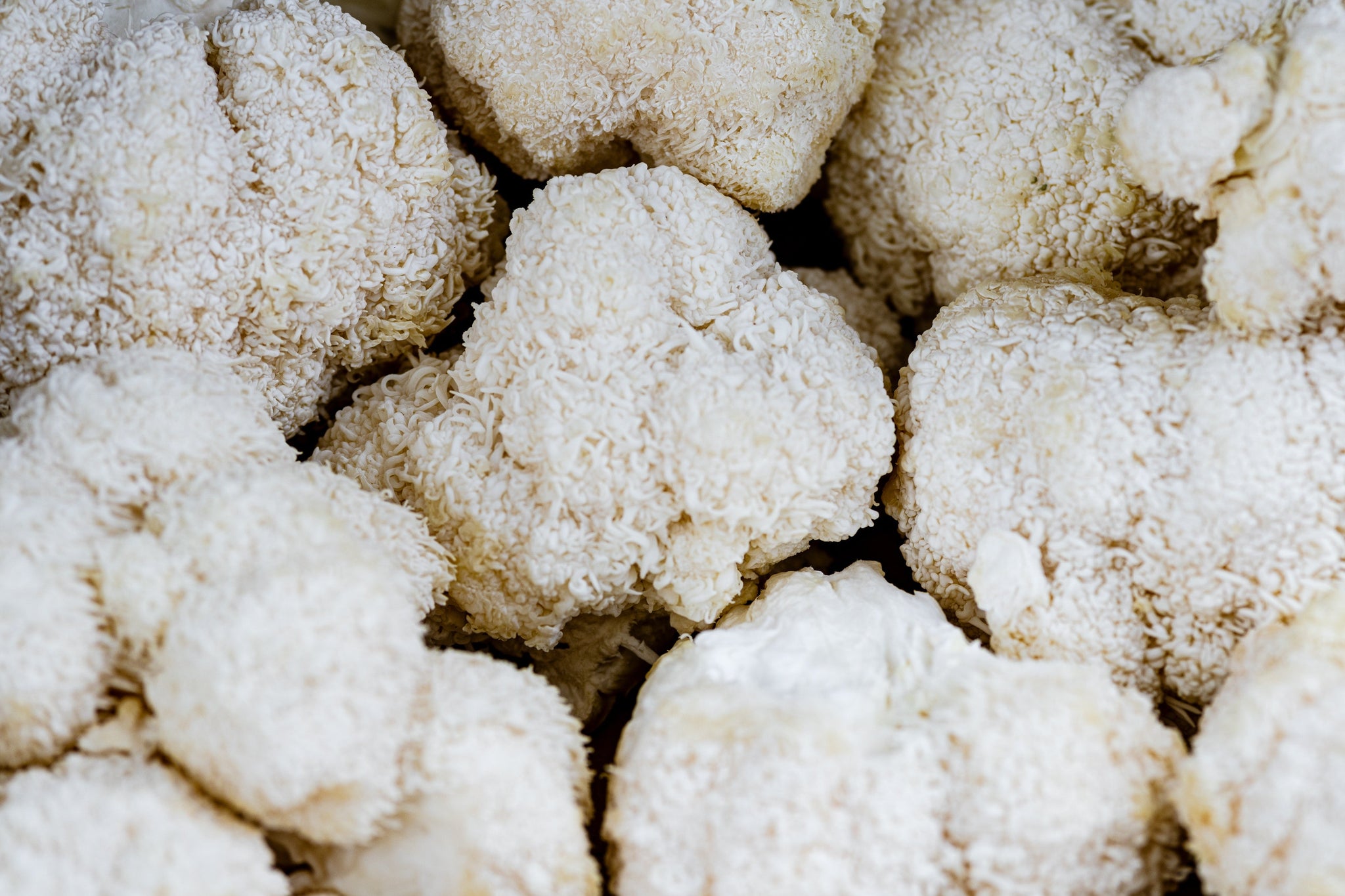
Health Benefits Of Lion’s Mane Mushroom
What Is Lion’s Mane Mushroom
Hericium erinaceus (Lion’s Mane Mushroom) is an edible and medicinal mushroom which occurs naturally in North America, Europe and Asia. In addition, it also goes by a number of other names such as bearded tooth mushroom, hedgehog mushroom and pom-pom mushroom because if how it looks like. Here are some key characteristics and information about Lion's Mane Mushroom:
Appearance: Lion’s mane mushroom is distinguished by its appearance – thick, long and shaggy, white to pale-creamy coloured body which has been compared to the mane of a lion, hence its name. This makes the body of this mushroom look fuzzy because of its hanging spines/teeth.
Edibility: The lion’s mane mushroom is an edible food that has a very delicate and distinct seafood like taste and feel when cooked, making it unique. This ingredient is used instead of meat and it adds an exquisite taste to different recipes. The crop can also be sautéed, oven roasted, stirred fried, and is good for preparing of soups or stews.
Medicinal Benefits: Lion’s Mane Mushroom is now known for its possible medicinal effects. It is believed to have various health benefits, including:
Cognitive Health: Cognitive function, according to some studies, can be supplemented by Lion’s Mane. This herb consists of ingredients believed to stimulate the production of nerve growth factor (NGF) necessary for the development of neurons.
Nervous System Support: It seems that this mushroom has neoroprotective properties and it can play a significant role in preventing or managing, for example, Alzheimer’s and Parkinson’s diseases.
Immune Support: Its properties might help in boosting activity of some specific immune cells.
Digestive Health: On top of this, digestive health can benefit from use of Lion’s Mane; some studies highlight its possible effects such as inflammation reduction and gastric ulcer treatment.
Antioxidant Properties: Antioxidants present in the mushrooms are able to fight against oxidation in the body.
Supplements: Available Forms of Lion’s Mane mushroom include; Powder, capsule, and Extracts. The mushroom is often used in these supplements so as to take advantage of its numerous health benefits. Nonetheless, you need to see a physician before adding new supplement to your diet.
Foraging: Even though Lion’s Mane Mushroom is sometimes available in the wild, one must caution while picking wild mushrooms since they resemble deadly counterparts. If you don’t know how to identify all kinds of mushrooms, it would be more secure to buy Lion’s Mane from trustworthy vendors or grow it by your own means.
Lion’s Mane Mushroom, an exciting and useful fungi provides great delight in food as well as possible health benefits. Like any dietary or medicinal supplement, it’s important to be cautious when consuming Lion’s Mane and consult with a health care practitioner when there is a pre-existing health problem that may require medical attention or advice concerning the addition of the Lion's Mane to your diet for its potential therapeutic effects.
Lion’s Mane Mushroom Health Benefits Detail
There are a number of purported potential health benefits attributed to Lion’s Mane Mushroom (Hericium erinaceus); although, it should be stated that certain of them require further scientific inquiry before their validity among humans can be attested. Here are some of the potential health benefits associated with Lion's Mane Mushroom:
Cognitive Health: Lion’s Mane Mushroom has caught the attention of researchers as a possible brain supporting product. These compounds include hericenones and erinacines that may enhance the production of the Nerve Growth Factor (NGF), a protein responsible for nerve cell growth, maintenance, and repair. Accordingly, some researchers have hypothesized that Lion’s Mane might improve cognition (memory and concentration). In may be helpful in treating Alzheimer’s disease, dementia and ageing related cognitive decline.
Nervous System Support: It is possible that the nerve regrowing property of Lion’s Mane could cover for some extent peripheral nervous system too. Some research suggests that it could help in peripheral neuropathy treatment characterized by tingling, numbness, and other pain sensation in body’s extremities.
Immune Support: Some bioactive compounds found in lion’s mane mushroom might be good for the immune system. However, some researches indicated that it increases some immune cells activities, which supposedly help the body in fighting infections and diseases.
Digestive Health: It is believed that consuming lion’s mane can improve the functionality of the digestive system, and this has prompted several studies. It might have anti-inflammatory effects, supporting gut conditions. In some studies, it appears that it may protect from stomach ulcers and promote gut health.
Antioxidant Properties: The mushroom is packed with antioxidants such as beta-glucans and phenolic compounds that neutralise destructive free radicals in the body. They do reduce the oxidative stress levels that could otherwise be harmful to health.
Mood and Stress: Initially, it appears Lion’s Mane Mushroom could be useful for mood support and decreasing anxiety and depression related symptoms. It may also have neuroprotective and neurotrophic qualities.
Anti-Inflammatory Effects: Lion’s Mane anti-inflammatory properties might decrease inflammation in body. These effects may have more general health implications given that chronic inflammation is known to link to numerous other potential adverse outcomes.
Cardiovascular Health: Although there are only a few studies on this topic, it seems that lion’s mane mushrooms might prove useful for cardiovascular health by lowering cholesterol levels and preventing heart diseases.
However, it’s important to remember that despite such positive health benefits prospects, additional studies need to be done to confirm their efficacy in human beings. Before considering adding Lion’s Mane Mushroom to your diet or using as an herbal remedy for any of the above-stated purposes, consultation with a qualified medical practitioner is highly recommended, more so when you have health concerns or take other medicines. Moreover, there may be variations in the quality and dosage of different brands of lion’s mane, hence selecting a credible supplier and following the prescribed dose is important.
Lion’s Mane Mushroom Side Effects Detail
Most individuals find lion’s mane mushroom (Hericium erinaceus) to be safe when consumed as food or taken as a dietary supplement in accordative dosage. The oil, which dates back many centuries as part of Asiatic nutrition, is usually safe for consumption. Yet, there are cases where people can suffer from side effects and allergies. Here are some potential side effects and considerations:
Allergic Reactions: Similarly, some people may be allergic to Lion’s Mane as with other mushrooms. These manifestations can run from simple complaints of skin rashes, itching, and gastrointestinal disturbance, to life-threatening conditions including difficult respiration and anaphylaxis. However, if you have an allergy to mushrooms, try the Lion’s Mane with precaution.
Gastrointestinal Issues: However, in some instances, taking Lion’s Mane Mushroom might result in slight stomach irritation like bloating,gas or diarrhoea. If it causes digestive issues, cut back or stop using.
Interactions with Medications: There are possible interactions between lion’s mane mushroom supplements and certain drugs involving blood clotting or immune system control. Before taking any lion’s mane supplement, especially if you are on medication, like anticoagulants and immunosuppressants, speak to your health care provider.
Blood Sugar Regulation: In some animal investigation, lion’s mane was found to possess hypoglycemic property; indicating dropping of blood glucose levels. If using Lion’s Mane supplement, people with diabetes and individuals on blood glucose-lowering medications, must monitor their sugar levels closely and discuss it with a doctor.
Safety During Pregnancy and Breastfeeding: The safety of Lion’s Mane Mushroom in pregnancy and lactation remains unclear. Pregnant or breast-feeding ladies should exercise caution and generally are advised not to use lion’s mane supplement without consultation with the doctor.
Quality and Source: Lion’s Mane contains varying qualities of products. One has to choose reliable brands and pure products for use. Supplements of low quality may include hazardous substances and insufficient amounts for biologically active components.
Dosage Considerations: Like all supplements, adherence to suggested doses is very important for safety reasons. There is a higher chance of side effects when taken in high amounts.
It is advisable to talk to a healthcare professional before taking Lion’s Mane Mushroom as part of your meal plan or supplement routine – and all the more importantly, in higher dosages, especially if you have underlying medical conditions or are on medication. Given your personal health profile, they are in a position to offer you advise relating to safety, potential interactions, and right dosages.
Like any new dietary change or addition in a person’s life, it is recommended that one should observe their body reaction and stop in case of any side effect. Immediately consult a health professional if you feel any allergic reactions or serious side effects.
How to Use Lion’s Mane Mushroom
The lion’s mane mushroom( Hericium erinaceus) can be used in multiple ways such as through food and also the supplements. Below are some common methods for using Lion's Mane Mushroom:
1. Culinary Use:
Fresh or Dried Mushrooms: Other than that, it is possible to prepare lion’s mane just like any other edible mushroom. Fresh Lion’s mane can be cooked, while dried ones can be re-hydrated by soaking in warm water. You can slice or shred them after rehydrating.
Cooking Techniques: Lion’s Mane is a mild tasting seafood that can be used in many different recipes. It is possible to pan-fry, stir fry, bake or roast, grilled, and also used in vegetarian or vegan recipe as substitutes for meat. it may be added to stir-fries, soups, stews, pasta dishes, omelets, etc.
Sautéed Lion's Mane: To prepare Lion’s Mane, you can cut it into large slices and fry with butter or olive oil till it turns to brown color and becomes crispy. Add more seasoning including herbs, salt and black pepper for taste.
Lion's Mane Risotto: Sauté some Lion’s Mane with onions and garlic, add the rice and broth to create a creamy risotto.
Lion's Mane Tacos or Sandwiches: The delicious and meaty texture of shredded and sautéed Lion’s Mane is perfect to use as a filling for tacos or sandwiches.
Lion's Mane Soup: To enrich your soups and broths with earthy and shiitake-like taste, you may add sliced or diced Lion’s Mane.
2. Supplements:
Capsules: The dietary supplement of Lion’s Mame Mushroom can come in tablets or capsules form. Use as directed on package, and consult with a professional.
Powders: The lion’s mane mushroom powder can be blended into drinks, smoothies or simply added to any food. Always refer to the label if using a branded tablet as it may have different dosages.
Extracts: Concentrated form of the active components of the mushroom is lion’s Mane extracts. They come in a liquid or tincture format. Use as directed in any product doses.
3. Tea and Coffee:
There are also some companies that sell tea and coffee infused with Lion’s Mane mushroom. The use of such products can make it easier for you to involve the mushroom in your everyday life.
4. DIY Tinctures and Extracts:
To create your own Lion’s Mane tincture, simply steep dried Lion’s Mane in alcohol or glycerin for a few weeks. They can be blended into drinks or taken as supplements.
When using Lion's Mane Mushroom, whether for culinary or supplemental purposes, it's important to:
Buying from reliable sources is critical, always be sure that the products are of good quality.
When trying for the first time, begin with small doses and progressively higher ones until you determine a dose that is comfortable for you.
If you would want to use Lion’s Mane for general well-being, it is advisable to seek advice from a doctor about dosage and the suitability of same, particularly
You may want to try incorporating the delicious Lion’s Mane Mushroom into your meals or use it as a supplement because of its possible health benefits.



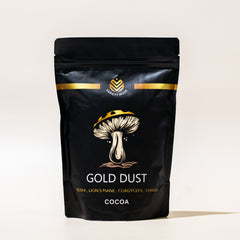
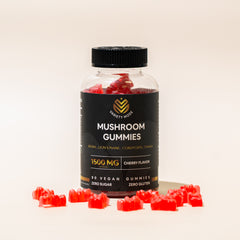
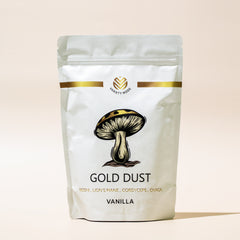
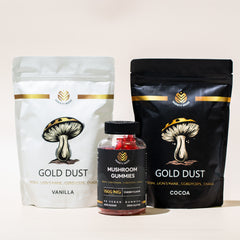
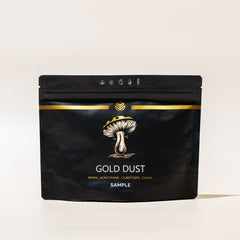

 Variety Mode LTD
Variety Mode LTD